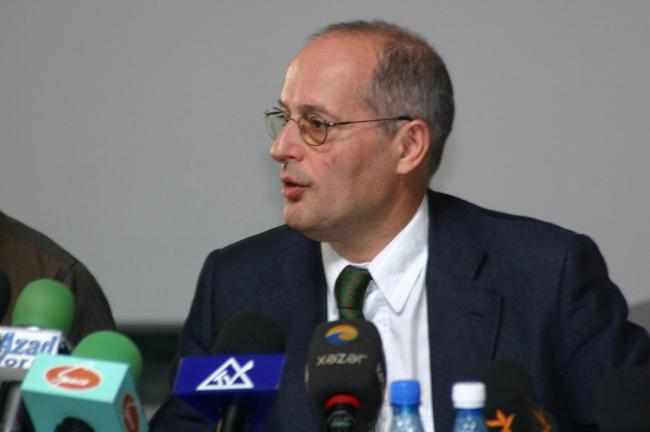
Belarus: execution shows ‘callous disdain’ for international human rights law – UN experts
“I am appalled by reports of the recent execution of Sergey Ivanov by the Belarusian authorities,” said Miklós Haraszti, the UN Special Rapporteur on the situation of human rights in Belarus.
Reports indicate that Ivanov, who was found guilty of murder and sentenced to death in 2015, was executed on around 18 April this year.
Ivanov’s brother had petitioned the Committee, arguing that Ivanov’s trial had been unfair. During the trial, he remained handcuffed and was obliged to wear special clothes with the label “capital punishment” on them. It was also alleged that he was not brought promptly before a judge upon arrest and had limited access to a lawyer.
Ivanov’s execution means Belarus, since 2010, has executed eight people whose cases were registered for examination by the Committee under the Optional Protocol to the International Covenant on Civil and Political Rights (ICCPR), to which Belarus is a State party.
Belarus remains the only country in Europe and Central Asia that applies the death penalty, despite repeated calls for its abolition from many in the international community, including the members of the European Union and the Council of Europe.
Haraszti once again urged the Belarusian authorities to adopt a moratorium on the death penalty, as an interim legal step towards it full abolition.
The human rights expert also voiced grave concern at news that another defendant, Sergei Khmelevsky, was sentenced to death by a court on 6 May. “The news testifies to the lack of progress on the human rights situation in Belarus,” he said.
The Human Rights Committee had requested the Belarusian authorities not to carry out the sentence, pending the examination of Ivanov’s case.
Non-compliance with the Committee’s request for interim measures constitutes a violation, by Belarus, of its obligations under the Optional Protocol to ICCPR.
“The decision to proceed with the execution of the death penalty amounts to both a callous disdain for and a grave breach of Belarus’ international human rights obligations,” said Nigel Rodley, Special Rapporteur on new communications and interim measures.
Independent experts or special rapporteurs are appointed by the Geneva-based Human Rights Council to examine and report back on a country situation or a specific human rights theme. The positions are honorary and the experts are not UN staff, nor are they paid for their work.
Photo: OSCE/Ilgar Hasanov
Support Our Journalism
We cannot do without you.. your contribution supports unbiased journalism
IBNS is not driven by any ism- not wokeism, not racism, not skewed secularism, not hyper right-wing or left liberal ideals, nor by any hardline religious beliefs or hyper nationalism. We want to serve you good old objective news, as they are. We do not judge or preach. We let people decide for themselves. We only try to present factual and well-sourced news.







